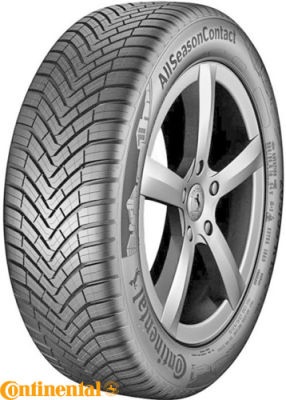Tires that are no longer doing their job won’t do your car any good. After all, your tires are the only contact of your car with the road. This is the reason why your tires must be in their best condition for you to be sure of your safety as well as that of other drivers.
But, the main question here is, how long do tires last in the first? To be honest, it depends. The average tire set can last for 4 to 5 years or 60,000 to 75,000 miles.
However, there are several important factors that can affect the overall lifespan of your tires.
Table of Contents:
Important Factors to Consider That Affect How Long Your Tires Will Last
There are several key factors that can affect the longevity of tires:
The Vehicle
Yes, the kind of vehicle where the tires are used plays a very important role on whether they will last long or not.
Tires of trucks and SUVs tend carry more weight compared to car tires of a sedan. It means that if you don’t use the right tires to your vehicle, they will wear out faster than normal.

There are also instances when there is really no clear and definite explanation on why the tires of a specific car model last longer to the tires of another model. Studies revealed that some Honda CRV models have suffered from premature tire damage and wear and tire that only increase the risks of road accidents or blowouts.
The Maker
Average tires have been designed to perform their job for up to 60,000 miles. There are tire makers that provide a warranty of as much as 80,000 miles or higher that shows their confidence in the longevity of the particular tire in terms of design, engineering, and technology. There are also tires that can be of service for up to 30,000 miles.

The specific type of tires that you buy at online store Silux will also play a big role in their longevity. For instance, tires with ultra high performance can last almost half the number of miles compared to family car tires. In addition, winter and summer and all season tires will boast of different ratings for treadwear, thus, their life spans are also different.
Your Place of Residence
Aside from your vehicle and the tire manufacturer, where you usually drive your car is one of the top factors you should consider if you want to know how long your tires can last.
The wear and tear of tires will vary depending on the specific terrain where you drive as well as the region where you live. If the temperatures are low, there will be lower pressure on the tires that can lead to underinflation, flats, and eventually, perilous driving conditions. Meanwhile, extremely high temperatures can make the roads warm up that can create more friction between the road and your tires. The increased heat emission that comes from the tires can be risky if they are not inflated correctly or are damaged or cracked.
Warmer temperatures and sunlight exposure can also shorten the life of your tires so tires used in warmer climates have the tendency to require a replacement faster.
But, no matter where your area of residence might be, it would be best to stay away from gravel roads, potholes and damaged roads if possible. Think of it this way. If your safety is guaranteed, it most likely guarantees the safety of your tires as well.
Style of Driving
Most of you surely know someone who loves driving like they are in a race. These people have more chances of getting prematurely worn-out tires. If your vehicle is regularly subjected to heavy loads, aggressive driving over potholes and speed bumps, and hard acceleration, this will take its toll on your tires.
Aside from the driving style, how much you drive per year can also contribute to the life of your tires. American drivers, on the average, can clock between 13,000 up to 14,000 miles per year. However, there are those who drive less or more than that.
Maintenance Routine
You need to practice proper and appropriate tire maintenance if you want to lengthen the lifespan of your tires.
- Check the tire pressure every month. Refer to the door placard or owner’s manual to know the suggested amount of air pressure.
- Check the alignment and balance of your wheels every year. If the wheels are out of alignment or unbalanced, this can result to irregular tread wear, shortening the life of your tires.
- Rotate your vehicle’s tires on a regular basis. Again, you can check the owner’s manual of your vehicle to know how often you should rotate its tires. Experts suggest that you get a tire rotation every 5,000 to 7,000 miles.
- Monitor your treadwear. Damaged or worn-out treads can be very dangerous since these can impact the stopping distance and result to car accidents. This is something you can conduct yourself through the so-called quarter test. Here, you will insert the quarter headfirst to the tire tread. When you see the entire head of George Washington, the tire tread is below or at 4/32” and needs a replacement soon. Your vehicle is going to fail the state inspection if it is at 2/32”.
- Always check your tires for any damage as well as signs of aging including uneven wear, air bubbles, low tread depth and cracks.
Age of Your Tires
Whatever the tread depth might be, if your tires are already over 6 years of age, you might want to consider replacing them already. This is because the tire’s rubber compounds deteriorate after some time that can lead to dry rot. This dry rot is the reason why your tires become more prone to tread separation and blowouts.
Tire and vehicle manufacturers usually recommend replacing their tires if they reached 6 to 10 years old, no matter what their tread depth is. However, for many drivers, the tire tread tend to wear out even before their tires reach this age.
Similar Posts from the same Category:
- Important Considerations When Choosing Car Motor Oil
- H7 LED lights – Why Switch to LED Headlights?
- Car Hail Protector Buying Guide
- More space in the car and less problems
- Top Reasons to Get New Seat Covers for Your Car
